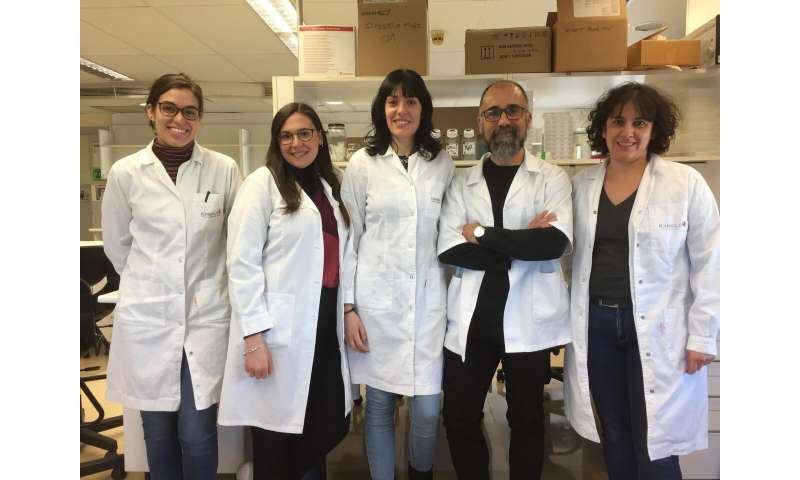A determinant protein for tumor progression and metastasis in Rhabdomyosarcoma

Rhabdomyosarcoma is the most common childhood cancer in the soft tissues, and it mainly originates in the muscles. It represents almost 5% of pediatric tumors, and the survival rate is between 60% and 70%. The work published in Cancer Letters journal focuses on the most aggressive and hard to treat rhabdomyosarcoma, the alveolar type. Metastasis plays an essential role in the disease progression, because it induces a severe decrease in patient survival rate, lower than 30%. Dr. Oscar M. Tirado’s group from Bellvitge Biomedical Research Institute (IDIBELL) has observed that these sarcoma cells have an increased level of LOXL2 protein, that is implicated in tumors’ metastatic capacity.
In a normal situation, LOXL2 acts, outside the cell, modifying the surrounding extracellular matrix. However, in a tumor environment, LOXL2 acts inside the cell, promoting metastasis processes by a mechanism independent from its normal function. Dr. Olga Almacellas, the first author of the study, states that in any future treatment that tries to inhibit LOXL2 activity to reduce rhabdomyosarcoma metastasis, the drug penetration inside the cells must be considered. Besides, she adds, existing drugs that block the classic LOXL2 activity would not affect their metastatic role, as it is independent of its classical function.
But not only cellular models of alveolar rhabdomyosarcoma showed a clear decrease in metastatic capacity by LOXL2 elimination. Also, the injection of these cells into healthy mice demonstrated that those expressing LOXL2 formed more metastasis than those without it. Additionally, patients’ samples, from the Virgen del Rocío University Hospital, suggested a lower survival rate for patients with higher levels of LOXL2. However, a more extensive study with more samples would be needed to confirm this relationship.
Source: Read Full Article
